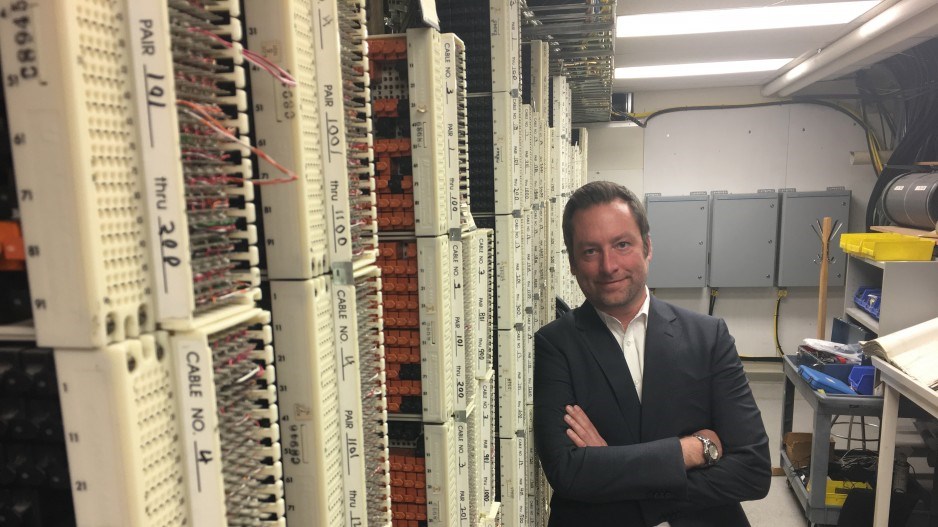When Prince Rupert telecommunications company CityWest Cable and Telephone Corp. was founded in 1910, the telephone service it provided included hand-crank phones, party lines and telephone operators who patched through calls via switchboard.
Back then, the company, CityTel, was one of many telephone utilities across Canada that were owned by the municipalities they served. Today, CityWest is the last small, municipally owned telco west of Ontario.
“There’s about, I think, four of us left in Canada,” said CityWest CEO Chris Marett.
While it still provides traditional landline telephone service to Prince Rupert, Terrace, Kitimat, Hazelton, Smithers and other communities in northwest B.C., CityWest also provides cable TV and internet services, including high-speed fibre optics.
And business has been growing, thanks to port expansion in Prince Rupert and a developing liquefied natural gas (LNG) industry in Kitimat.
The company has also benefited from provincial and federal funding programs aimed at increasing access to high-speed internet service for northern and First Nations communities in B.C.
For most of its history, CityTel was a municipal telephone utility. In 2005, the company bought out Monarch Cablesystems, a cable and internet provider, and became CityWest. Three years ago, it launched internet protocol TV (IPTV).
“We have the traditional Shaw-style TV, which is on coax [coaxial cable], and then we have the Telus-style TV, which is IPTV,” Marett said.
CityWest competes against Telus Corp. (TSX:T) in some of the communities it serves, except Prince Rupert, where it is the sole TV and internet provider.
CityWest serves about 16,000 customers in northwest B.C. and employs approximately 80 people. It operates a bit like a mini Crown corporation. The City of Prince Rupert owns CityWest, but it operates as an independent business and pays dividends to the city when it makes a profit.
One of the big challenges for a company like CityWest is providing service to a vast region with a small population.
“You’re in a business that has pretty significant economies of scale,” Marett said.
The enterprise side of the business has been growing recently, thanks to industrial activities in Prince Rupert and the Kitimat-Terrace area, but CityWest also suffered significant customer declines in Prince Rupert due to the Skeena Cellulose pulp mill closure in 2001 and the area’s decline in commercial fishing and processing.
“[Prince Rupert] went from 18,000 to about 12,000 people,” Marett said. “Now, with the growth of the port here, we’re seeing a lot more high-paying jobs. And we’re seeing a lot more business circuits.
“In terms of business services, the business service has definitely grown with the growth of Prince Rupert. But also, in Kitimat, we’ve gotten a lot of the LNG business.”
In addition to providing services to a growing number of business customers in the region, CityWest has recently seen an increase in demand for service for temporary communities: work camps. So far, the company has received contracts to provide phone, TV and internet services to two large work camps in Kitimat and two in Prince Rupert. The company has also received provincial and federal funding to bring high-speed internet services to villages in the Nisga’a territory and other remote First Nations communities.
Last year, the federal government announced $9.3 million in funding for CityWest, and the provincial government added $3.1 million to help the company improve high-speed internet service for 23 communities and 97 institutions, including public schools.
The push to bring connectivity to Canada’s north has provided a number of First Nations communities with some of the highest bandwidths available through fibre optics.
“A lot of the [First Nations] villages we’ve gone into have state-of-the-art fibre,” Marett said. “You can go to Gitanmaax or Kispiox, and those are full-on fibre-to-home builds with high-speed internet and IPTV.”
CityWest is now working on a $10 million fibre optic cable expansion in Prince Rupert. It plans to have half the city connected to fibre optics by the end of 2019.




